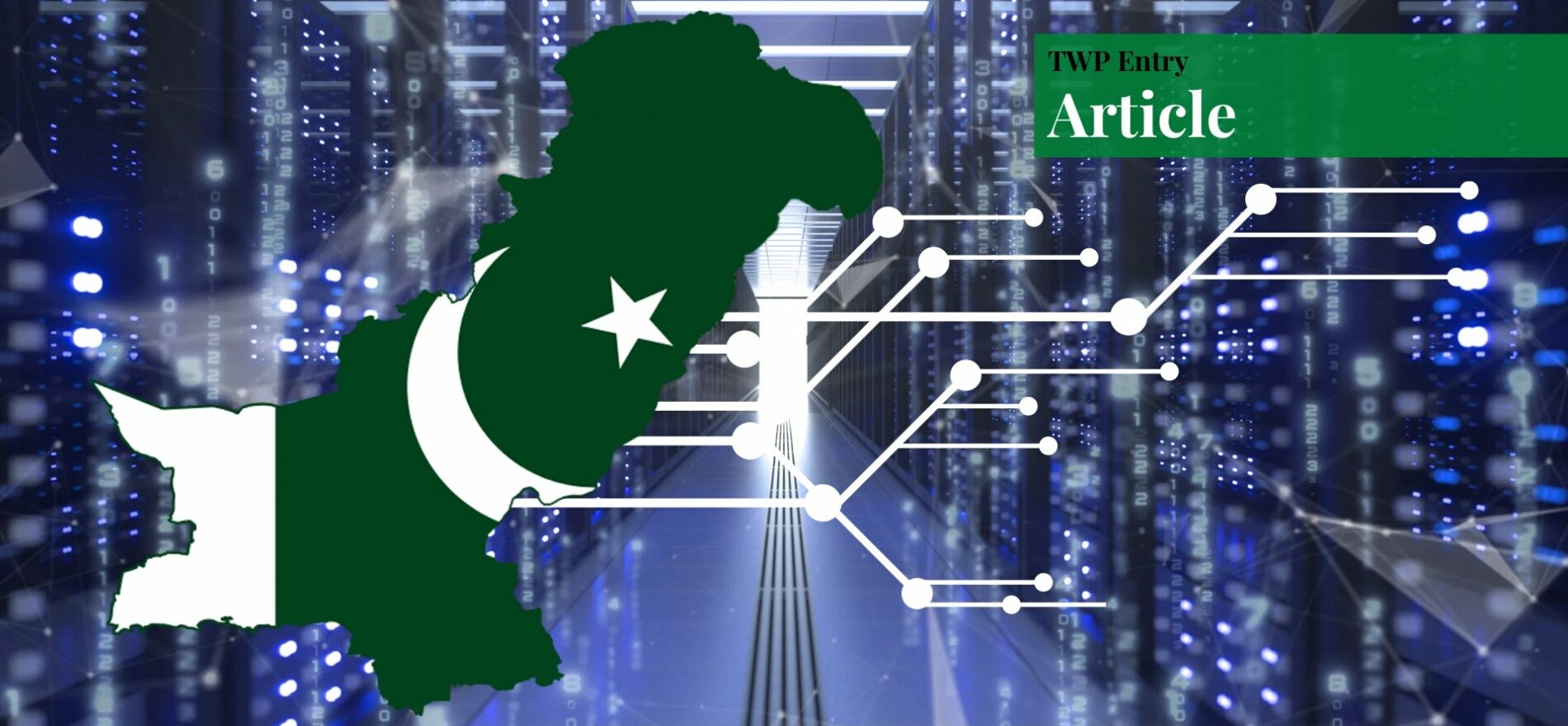Why Pakistan Needs AI
The last few years have seen a massive surge in AI technologies around the world, with many countries investing heavily in such technologies for military and national security purposes. Moreover, big corporations such as Microsoft have been pouring billions of dollars into AI-powered consumer products, hoping to become the next big market leader in this space.
As of today, the common person has access to (literally) hundreds of AI-powered tools available online for both basic and advanced digital tasks. Considering the state of the world we find ourselves in right now, Pakistan’s need to invest in AI development is as obvious as accessibility to the internet was in the 2000s.
Although this serves as a great opportunity for job creation, fixing agricultural issues, and driving economic growth, the problems that Pakistan’s public is bound to face with AI across all domains are huge and complex. First of all, we need to note that AI is an umbrella term for a wide range of technologies.
For Pakistan to remain competitive among global powers, it is crucial to develop and deploy its own AI technologies. In fact, it is no longer a fancy tool for exponential growth, but an essential requirement for survival in today’s world. To understand the path toward the adoption of AI in Pakistan, it is imperative to look at the history of digitalization in the country.
Pakistan’s Struggle with Digitalization
According to a report released by the Asian Development Bank in December 2022, Pakistan’s efforts to digitalize have been marred due to “inadequate and ineffective policies (mainly on export, taxation, and servicing) for ICT sector development, with a poor understanding of the new internet-based economy and digital trade in services on the part of government officials and regulators.”
The problem with digitalization is the same as the problem with all notions of progress in Pakistan: it is hindered by shallow, ineffective, and ad-hoc policymaking. This problem has also extended to the more specific domain of AI development. Unfortunately, the issue does not stop at the government level. The Pakistani private sector (save for some multinational corporations) is also known for running on ineffective and obsolete methods of business, and maintaining a corporate culture that does not value sustainable growth but strives to gain short-term profits using outdated methods.
As a country, neither on the government level nor on the private level, has Pakistan been able to produce many value-driven or meaningful products or services. If history is any indicator of what the future may hold, it is safe to say that AI development is going to suffer the same way that efforts toward general digitalization have so far. AI is going to give a massive boost to economies worldwide, and if Pakistan does not catch up with the ongoing race, it will be left much behind. Let us now dive into the specifics of what problems the country might face when it comes to AI development and deployment.
AI Policy
First and foremost, any country needs a policy that defines and outlines how the development will take place. So far, any policy regarding AI has not been put into practice. It is true that there have been certain initiatives such as the Presidential Initiative for Artificial Intelligence & Computing (PIAIC), but they focus on providing education for the youth, instead of some structured plan on how things will be worked out.
For this very reason, Pakistan strictly needs an actual policy on how AI systems would be developed or implemented. Quite recently, a task force was formed to develop a roadmap for AI development for the next 10 years. The “Federal Minister for Planning, Development, and Special Initiatives Ahsan Iqbal has formed a 15-member National Task Force (NTF) on Artificial Intelligence (IA) for the country’s national development,” the planning ministry said in a statement earlier in April. With a roadmap for the next decade in the works, there is potential and hope for significant advancements.
Domestic Production of AI Systems
Moving on, it is also important to realize that each country or society needs to build its own AI systems, instead of relying on technologies or pre-built systems imported from other countries. As local systems can be tailored and optimized for usage by a certain group of people, they are a better alternative. This leads us to the idea of having natively built, decentralized AI systems which are not controlled by multinational corporations or by stronger governments across the rest of the world. However, there is one major hurdle that Pakistan is going to face in this regard, and that is the “alignment problem”.
Values and AI
Each AI system needs to be aligned with some “values,” which guide the working and operation of the system. For example, if you ask the AI chatbot ChatGPT instructions for making a strong computer virus, it is going to decline your request because of its value alignment. It is not designed to entertain such requests which can lead to harm for society. This is just a broad example, as value alignment can be much more complicated and deeper.
Now, the reader may ask, how is this going to be a problem for Pakistan in particular, if it is a general issue faced by all AI developers? The answer lies in the faulty education system of the country. For strong value alignment, what is needed is not just a technical study of how computer systems work, but a comprehensive and practical knowledge of philosophical and ethical theories. The Pakistani education system has done an extremely poor job of providing the nation’s youth with the appropriate critical thinking and philosophical skills. Therefore, many of the skilled youth are technically “specialized labor,” and not “thinkers.”
What is needed here are thinkers and ethicists who are capable of figuring out how to make the AI systems moral and more aligned with human values. The same concern was shown by Google’s CEO Sundar Pichai in a press conference in April, where he stated that AI development needs the involvement of philosophers and ethicists. The lack of philosophical knowledge and critical thinking in the Pakistani youth is a concerning issue that could have serious implications for the development of AI-based systems in the country. Without a strong foundation in philosophy and ethics, Pakistani developers looking to create their own AI systems may not be able to address the ethical and moral challenges associated with AI deployment effectively.
AI’s Capitalist Design
Speaking of value alignment, it is important to note that there is a certain ideological framework already built into the whole concept of AI as we know it. Anyone familiar with the buzz around AI would have heard how the technology is going to “supercharge” productivity, make workflows more “efficient”, drive more “revenue growth”, and “optimize” tasks. As the reader may guess from these keywords, this ideological framework is capitalism. In some sense, AI, from the ground up, is built for capitalism.
This capitalistic design of artificial intelligence is a double-edged sword. It is precisely this design that allows for sheer economic growth and gives a major boost to development (only in the materialistic sense though, as the moral problems around AI are far from being solved). However, this capitalistic design is also the very thing that can make it trouble for the mass public.
First of all, whenever a corporation installs some kind of artificial intelligence system, it automates many of its processes. This can lead to job losses. But job losses may be a slippery slope as new jobs are also created thanks to such systems. The problem remains that as AI makes a certain job or task easier to perform, that task becomes low-paying, if not totally automated. It requires less skill and less effort to be performed, and no capitalist corporation is going to miss such a golden chance of cutting down its expenses.
There are different ways that a corporation can pull this off: it can lower the salary of fresh hires, or it can simply raise the performance targets of its existing employees, reaping more profits from them, but paying them the same salary for it. In other words, AI technologies can easily become a tool for exploitation at the hands of big corporations. In fact, this has already happened, as artificial intelligence has caused a 50% to 70% decrease in wages in the USA. According to the IMF, this is leading, in the longer run, to a widening wealth gap between the rich and the poor.
This is a more serious problem in Pakistan than in other countries, owing to the fact that minimum wage laws are never strictly implemented here. A brief survey of job posting sites or professional social media such as LinkedIn is enough to reveal the realities of the Pakistani corporate culture. Talking of jobs and the corporate sector, it is also imperative to discuss a flaw in the idea that AI will lead to more jobs for everyone.
Yes, it is true that it will create new jobs in some fields, with some examples being: AI architecture, ethics research, data science, robotic process automation (RPA), cybersecurity, and so on. However, it cannot always address the changes that will be brought about in other fields. The legal profession is a great example. Newer AI systems are so powerful in their processing of logic and search capabilities that many tasks which were previously performed by low- or mid-tier lawyers can now be outsourced to these systems. Such white-collar jobs were previously thought to be immune from automation, but now they are not so.
If today an AI system can aid an attorney in an investigation, it might completely replace the attorneys, or at least their assistants, in the very near future. According to a paper published by OpenAI, the company behind the famous ChatGPT, more than 80% of the jobs in the USA today can be impacted by GPT-based AI systems (GPT being the technical term for an AI model which can generate outputs based on a dataset on which it received its training).
Considering that much of Pakistan works on outdated models of jobs (which lack real problem-solving or higher-order thinking), they are quick to be replaced by AI. It remains to be seen how the government will deal with the social disruption brought about by AI. The previous track record of the nation in dealing with social changes has not been remarkable, to say the least. Furthermore, AI tools have also led to an increase in fake news, fake videos (known as Deepfakes), and other spread of misinformation around the world. All of these phenomena are going to add to the societal challenges lying ahead.
Impact of AI on Pakistan’s Education System
One last problem that I would like to address here is the way the Pakistani education system is going to be impacted by AI tools. Cheating among students is already rampant in our educational institutes, along with malpractices among teachers. Academic integrity and honesty seem like alien ideals. AI tools allow us to outsource much of our thinking to the machine as well, as they can write and chat on our behalf.
What stops a teacher from preparing all lesson plans or lecture slides using AI, without putting in a single thought of their own? Or what stops a student from submitting a totally AI-generated essay, despite the availability of detection software, in a culture where cheating is never taken seriously? These are complex questions to which one cannot find answers easily.
Conclusion
Wrapping it up, AI is the next big step in the history of humanity, so big a step that some philosophers call it a new age in the evolution of intelligence, breaking away from the older ideas of Darwinian evolution. Considering the magnanimity of this incredible technology, the road ahead for Pakistan is going to be rough and full of obstacles. The country needs a proper education of the youth, timely policy-making, and effective enforcement of the regulations resulting from those policies. Pakistan can only emerge as a successful nation, both in the field of AI and generally, if these conditions are met.
If you want to submit your articles, research papers, and book reviews, please check the Submissions page.
The views and opinions expressed in this article/paper are the author’s own and do not necessarily reflect the editorial position of Paradigm Shift.



















